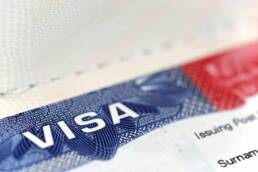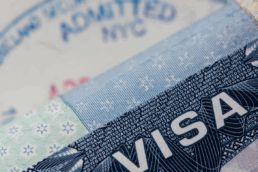Today, the Department of Homeland Security posted a final rule amending regulations governing H-1B cap-subject petitions, including those that may be eligible for the advanced degree exemption. As a reminder, cap-subject petitions are filed on April 1 of each year for individuals who are applying for H-1B status for the first time. To read more about the general H-1B visa process, click here.
Beginning April 1, 2019, USCIS is changing the way that it typically reviews H-1B cap petitions. Some important background information first:
The government typically issues 65,000 H-1B visa numbers for all first-time applicants, plus an additional 20,000 visa numbers for individuals who obtain a master’s degree or higher from a U.S. institution. Traditionally, USCIS has selected the 20,000 master’s cap applicants first, and whoever wasn’t chosen in the first selection was then added to the pool for the 65,000 remaining visa numbers to be chosen.
In 2017, President Trump issued the “Buy American, Hire American” Executive Order, which specifically mentioned the H-1B program and directed the Department of Homeland Security and other agencies to “suggest reforms to help ensure that H-1B visas are awarded to the most-skilled or highest-paid petition beneficiaries.” To learn more about this executive order, click here.
In an effort to comply with the initiative above, USCIS has announced that it is changing the way that it conducts its selection process. Instead of choosing the 20,000 master’s or higher applicants first, it will now choose the 65,000 petitions for all applicants first. It will then make the selection of 20,000 applications for U.S. master degree or higher recipients. It is estimated that this simple change alone will result in an increase of up to 16% (or 5,340 workers) of the number of selected petitions for individuals with a U.S. master’s degree or higher. As a result, H-1B candidates with a master’s degree or higher from a U.S. institution may have a higher chance of selection than in the past.
Further, USCIS also confirmed that it will institute an additional “pre-registration” requirement to the H-1B cap process that will be instituted in 2020; thus, it will not affect filings for April 1, 2019. Here, instead of sending a completed petition to USCIS on April 1 and awaiting either a Receipt Notice or Notice of Rejection, employers will have an opportunity to know in advance of filing whether their applications have been selected for review. The process works as follows:
1. Employers pre-register online before April 1st with basic information about the beneficiary and the intended position
2. USCIS conducts a lottery among online registration
3. USCIS notifies selected registrations’ employers to file H-1B petitions within a certain window of time
4. Selected H-1B petitions are filed with USCIS and will receive either a Request for Evidence or an Approval
Berardi Immigration Law is committed to providing our clients with the most accurate and up-to-date immigration news. If you are an employer or employee interested in learning more about the H-1B visa program, please contact our office to schedule a consultation with one of our attorneys today.
Ready to have Berardi on your side?
Whether you’re a business looking to hire or a professional hoping to relocate, immigration law can be complicated. But you don’t have to do it alone. Put our experience to work for you.



